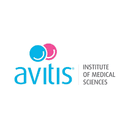Diploma in Cardiovascular and Thoracic Nursing
OR
Prepared by Docthub Courses Team ∣
Last updated on 26 Sep 2025
Overview
A Diploma in Cardiovascular and Thoracic Nursing is a specialized program in nursing. This course belongs to the specialty of cardiovascular and thoracic healthcare. It typically lasts 1-2 years. The program focuses on training nurses to provide advanced care for patients with heart and lung conditions, including pre- and post-operative care for cardiac and thoracic surgeries. Students learn about cardiac anatomy, respiratory systems, patient assessment, and critical care techniques.

Table of Content
What is a Diploma in Cardiovascular and Thoracic Technology?
The Diploma in Cardiovascular and Thoracic Technology is a paramedical program focused on training professionals to assist in the diagnosis and treatment of cardiovascular and thoracic diseases. It provides both theoretical and practical knowledge in operating medical equipment, performing diagnostic tests, and understanding cardiac anatomy and pathology.
Highlights
| Particulars | Details |
| Course Name | Diploma in Cardiovascular and Thoracic Technology (CVTT) |
| Course Type | Diploma |
| Duration | 2 years |
| Eligibility | 10+2 with Science (Physics, Chemistry, and Biology) |
| Admission Process | Merit-based or Entrance Exam (varies by institution) |
| Fees | INR 30,000 - 1,50,000 (varies by institution) |
| Colleges in India | AIIMS Delhi, Christian Medical College Vellore, SRM Institute Chennai, Manipal Academy of Higher Education, JIPMER Puducherry |
| Job Roles | Cardiovascular Technologist, ECG Technician, Cath Lab Technician, Cardiac Care Technician, Medical Equipment Specialist |
Eligibility
- Applicants must have completed 10+2 with Physics, Chemistry, and Biology (PCB) from a recognized board.
- A minimum aggregate score of 45-50% is required (varies by institution).
- Some institutions may conduct entrance exams or interviews for admission.
Duration
The Diploma in Cardiovascular and Thoracic Technology spans 2 years, including theoretical coursework and practical training.
Fees
The tuition fee for this diploma ranges from INR 30,000 to 1,50,000, depending on the institution and location.
Who Should Pursue a Diploma in Cardiovascular and Thoracic Technology?
- Students interested in healthcare and paramedical sciences.
- Those aspiring for a career in cardiovascular technology.
- Individuals passionate about assisting in cardiac procedures.
- Candidates aiming to work in hospitals, diagnostic centers, and cardiac care units.
Why Study a Diploma in Cardiovascular and Thoracic Technology?
- High demand for trained cardiovascular and thoracic technologists.
- Employment opportunities in hospitals, cardiac clinics, and research institutions.
- Attractive salary prospects in the healthcare industry.
- Hands-on experience with modern diagnostic tools and techniques.
Diploma in Cardiovascular and Thoracic Technology Entrance Exams
Some institutions conduct entrance exams, while others provide admissions based on merit. Common entrance exams include:
- State-level paramedical entrance tests
- Institution-specific entrance exams
Admission Process
- Step 1: Verify eligibility criteria.
- Step 2: Submit an application to the preferred institution.
- Step 3: Appear for entrance exams (if applicable).
- Step 4: Attend counseling or an interview (if required).
- Step 5: Complete document verification and pay admission fees.
Diploma in Cardiovascular and Thoracic Technology Syllabus
The curriculum includes the following subjects:
| Year/Semester | Core Topics Covered |
| Semester 1 | Human Anatomy and Physiology Basic Biochemistry and Pathology Fundamentals of Cardiovascular Technology Medical Ethics and Patient Care Electrocardiography (ECG) Techniques Introduction to Diagnostic Procedures
|
| Semester 2 | Cardiac Catheterization and Interventional Procedures Advanced Electrocardiography and Arrhythmia Analysis Thoracic Surgery Assistance and Techniques Cardiac Imaging and Diagnostic Tools Clinical Training and Hands-on Practical Emergency Management in Cardiac Care |
Career Scope
Graduates can find employment in:
- Hospitals (Cardiology and Cardiothoracic Departments)
- Diagnostic and Imaging Centers
- Cardiac Rehabilitation Centers
- Medical Research Institutions
Further Study Options
- B.Sc. in Cardiovascular Technology
- B.Sc. in Perfusion Technology
- M.Sc. in Cardiovascular Technology
- Postgraduate Diploma in Cardiovascular and Thoracic Technology
Career Opportunities After Completing the Diploma
- Cardiovascular Technologist
- ECG Technician
- Cath Lab Technician
- Cardiac Care Technician
- Medical Equipment Specialist
Salary Expectations
The initial salary for diploma holders ranges from INR 2,00,000 - 4,00,000 per annum, depending on experience and job location. With experience, salaries can rise to INR 6,00,000 per annum or more.
Explore colleges for this course
Quick Go Links

Explore this course by location..
by States
by Cities
Related Job Roles
Thoracic Nurse
Cardiac Surgery Nurse
Related Job Vacancies
View All 46 Jobs

FAQS
What is the duration of the Diploma in Cardiovascular and Thoracic Technology?
The course duration is 2 years, including practical training.
What are the job opportunities after completing this diploma?
Graduates can work as Cardiovascular Technologists, ECG Technicians, and Cath Lab Technicians in hospitals and diagnostic centers.
Is there an entrance exam for this course?
Some institutions require an entrance exam, while others admit students based on 10+2 merit.
Can I pursue higher education after this diploma?
Yes, students can continue with a B.Sc. in Cardiovascular Technology, M.Sc. in Cardiovascular Technology, or other postgraduate programs.
What is the expected salary after completing this diploma?
The starting salary typically ranges from INR 2-4 LPA, with potential growth based on experience.
Related Course titles

Qualifications
Diploma in Nursing
GNM (General Nursing and Midwifery)
BSc Nursing
Related Specialty
Cardiology Nursing
Clinical Research Nursing
Cardiothoracic OT Nursing
Cath Lab Nursing



